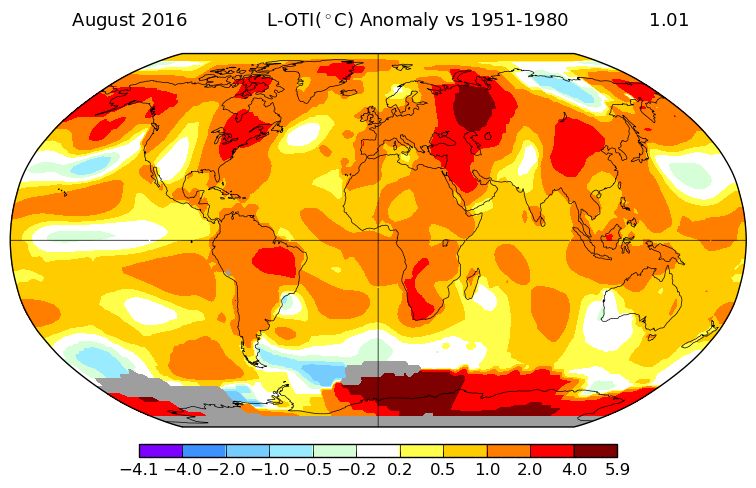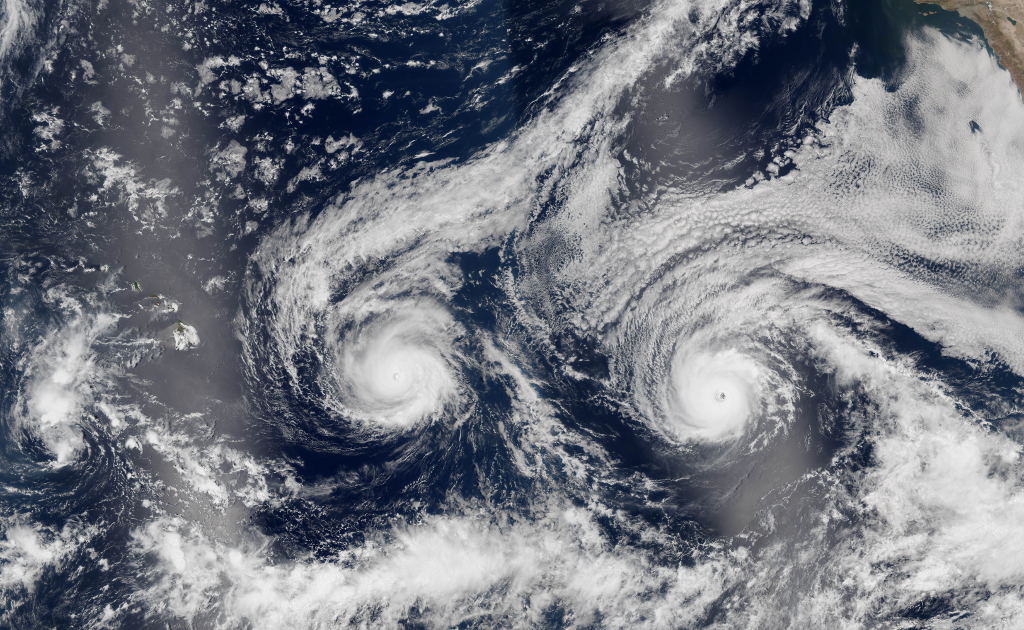NASA confirmed the month of August was the hottest August ever recorded. In fact, it ties with July as the hottest in history since tracking began.
But the record-breaking started months earlier than that. Beginning in October 2015, we’ve been on a scary 11-month streak for experiencing the hottest temperatures ever recorded. By year’s end, we’ll likely see 2016 become the hottest year recorded as well.
As stunning as these statistics are, GISS Director Gavin Schmidt stressed the importance of keeping the larger picture in mind.
“Monthly rankings, which vary by only a few hundredths of a degree, are inherently fragile,” he said. “We stress that the long-term trends are the most important for understanding the ongoing changes that are affecting our planet.”

And there’s no shortage of real-world examples reminding us of just how the warming trend impacts our planet.
Scientists have already been warning of more severe weather conditions as a result of climate change. This means last month’s unprecedented levels of flooding in Louisiana will likely become more commonplace.
“Climate change has already been shown to increase the amounts of rain falling in the most intense events across many parts of the world, and extreme rainfall events like this week’s Louisiana storm are expected to grow increasingly common in the coming years,” wrote the Weather Underground’s Bob Henson and Jeff Masters on August 15th.
Double hurricanes are rare occurrences in nature. But we may be set to see even more of these mesmerizing swirling pairs like the duo that passed by Hawaii in August. The island state is expected see an increasing number of hurricanes in the future as a result of global warming, according to one study published in Nature Climate Change.

Wildlife is adapting to climate change in their own ways. The oceans’ fish have been migrating closer to the poles in search of cooler water for decades, say researchers from the University of British Columbia. The tropics could become fishless as early as 2050.
Amid these dramatic changes across the globe, 27 countries have so far agreed to ratify the 2015 Paris agreement which aims to hold the rise in global temperature to “well below 2 degrees Celsius”. The agreement needs 55 countries to join, representing 55% of the world’s greenhouse gas emissions, before it can enter into force.
The U.S. and China formally ratified the agreement at the G20 summit in September – an important step as the two economic powerhouses together produce roughly 38% of the world’s greenhouse gas emissions. Their ratification means other countries are more likely to join the agreement by the end of the year.
But climate experts argue that the Paris agreement doesn’t go far enough to actually meet the target. Not only do they cast doubt on the countries’ commitment and ability to uphold the deal, some scientists argue we need to be moving more quickly. In a recent analysis, Stanford University earth scientist Rob Jackson and his team writes “without immediate and substantial mitigation . . . time has nearly run out for 2°C.”
Right now, the one thing that’s most certain is the stakes couldn’t be any higher.











